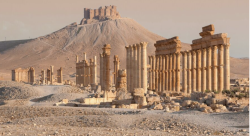Letter from Africa: Culture clash over Nigeria's rival alphabets
- 2020-11-15 18:54:22


 Pierre Rayer: Art, Science, and Happiness: The Universal Mission of Transmission to Future Generations through Patronage at the Louvre Abu Dhabi
Pierre Rayer: Art, Science, and Happiness: The Universal Mission of Transmission to Future Generations through Patronage at the Louvre Abu Dhabi Ahly crowned Super champions after dramatic extra-time win over Modern Future FC
Ahly crowned Super champions after dramatic extra-time win over Modern Future FC Yemeni Honey..A Development Wealth Threatened By Conflict And Climate Change
Yemeni Honey..A Development Wealth Threatened By Conflict And Climate Change California wildfires: Millions warned of possible power cut
California wildfires: Millions warned of possible power cut Central African rebels launch attacks near capital
Central African rebels launch attacks near capital Syria president sends condolences to Trump after attack on US troops
Syria president sends condolences to Trump after attack on US troops Attack on Hanukkah celebration at Bondi Beach follows rising antisemitism in Australia
Attack on Hanukkah celebration at Bondi Beach follows rising antisemitism in Australia Syria captures five suspects in Palmyra attack on US military
Syria captures five suspects in Palmyra attack on US military Yemen : UNSC to Hold Annual Session Wednesday to Hear Briefings from Outgoing Subsidiary Body Chairs
Yemen : UNSC to Hold Annual Session Wednesday to Hear Briefings from Outgoing Subsidiary Body Chairs Sudanese Coalition Accuses Army of Targeting UN Headquarters in Kadugli
Sudanese Coalition Accuses Army of Targeting UN Headquarters in Kadugli
